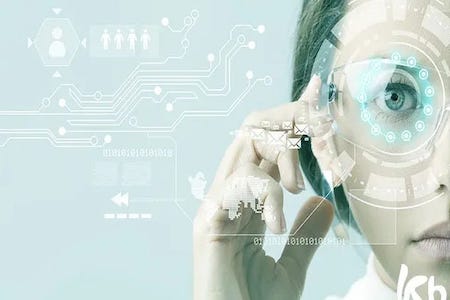Artificial intelligence (AI) has rapidly transitioned from a futuristic concept to an integral part of modern society, reshaping industries and daily life. What once seemed like science fiction has now become a powerful tool that enhances productivity, personalizes experiences, and tackles global challenges. As AI becomes more embedded in our lives, it’s essential to explore the far-reaching benefits this technology brings.
1. Transforming Healthcare
One of AI’s most profound impacts is in healthcare. AI-powered tools are improving diagnostics, drug development, and treatment plans. Algorithms can analyze medical images with high accuracy, identifying conditions like cancer and neurological disorders at early stages. Machine learning models also assist in predicting patient outcomes, optimizing treatment plans, and even tailoring therapies to individuals’ genetic makeup, ushering in an era of personalized medicine.
Furthermore, AI is driving innovations in drug discovery, speeding up the process of identifying new therapeutic compounds, and reducing the time it takes to bring life-saving medications to market. This accelerated pace is crucial in addressing public health crises like pandemics or rare diseases.
2. Revolutionizing Education
AI is revolutionizing education by creating personalized learning experiences. Intelligent tutoring systems adapt to individual students’ learning styles, pace, and needs, ensuring more effective outcomes. These systems offer real-time feedback, helping students grasp difficult concepts and allowing educators to identify areas where students struggle.
Moreover, AI-powered educational tools are expanding access to education in underserved communities. Through language translation technologies and adaptive learning platforms, learners around the world can access quality education, breaking down barriers of geography, language, and economic status.
3. Boosting Business Efficiency
Businesses across industries are leveraging AI to enhance operations, improve decision-making, and boost efficiency. From automating routine tasks to generating insights from vast amounts of data, AI enables organizations to operate more strategically. AI-driven analytics tools can sift through enormous datasets, identifying trends, consumer behaviors, and operational inefficiencies that would otherwise go unnoticed.
In customer service, AI chatbots and virtual assistants handle queries 24/7, providing instant responses and freeing up human agents to focus on more complex tasks. The integration of AI in supply chain management, financial forecasting, and marketing optimization further enhances operational agility and precision.
4. Driving Innovation in Environmental Sustainability
AI holds significant promise for addressing climate change and promoting environmental sustainability. AI-driven systems can optimize energy consumption in industries, cities, and homes, reducing carbon footprints. Machine learning models are being used to analyze satellite data, track deforestation, and monitor wildlife populations, providing invaluable insights for conservation efforts.
AI-powered agricultural technologies, such as precision farming, are helping farmers maximize crop yields while minimizing water usage and pesticide application. By optimizing resource use, AI is playing a crucial role in advancing sustainable practices in agriculture, energy, and beyond.
5. Enhancing Creativity and Innovation
AI isn’t just about numbers and data—it is increasingly being used to augment human creativity. In fields such as art, music, and literature, AI algorithms are generating new works that push the boundaries of human imagination. From designing virtual environments to composing music, AI’s ability to collaborate with artists opens up exciting possibilities for creative expression.
In industries like fashion and architecture, AI tools help designers create innovative products by analyzing trends and generating design options, leading to novel creations that reflect both human ingenuity and technological prowess.
6. Improving Transportation and Urban Planning
The integration of AI in transportation systems is revolutionizing how people move around cities and across the globe. Autonomous vehicles, powered by AI, promise to make travel safer and more efficient by reducing accidents caused by human error. AI algorithms also optimize traffic flow in urban areas, reducing congestion and improving fuel efficiency.
In urban planning, AI-driven simulations model population growth, resource usage, and infrastructure needs, allowing policymakers to make data-driven decisions for sustainable city development. Smart cities, where AI systems monitor and manage everything from traffic to energy grids, are becoming a reality, enhancing the quality of urban life.
Conclusion: A Responsible Future with AI
While the benefits of AI are immense, it is crucial to approach its development and deployment with responsibility. Ethical considerations, such as bias in algorithms, data privacy, and the potential displacement of jobs, must be carefully managed to ensure that AI serves the collective good.
As we continue to explore the potential of AI, it is clear that this technology will shape the future in ways we are only beginning to understand. By leveraging AI’s capabilities thoughtfully, we can unlock new opportunities for innovation, solve pressing global challenges, and create a more efficient, sustainable, and creative world. The promise of AI lies not just in what it can do, but in how it can amplify human potential.

